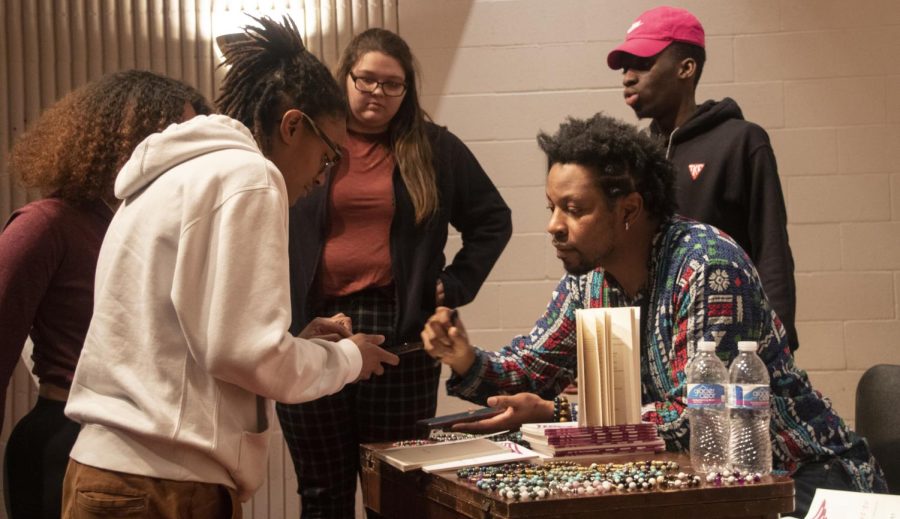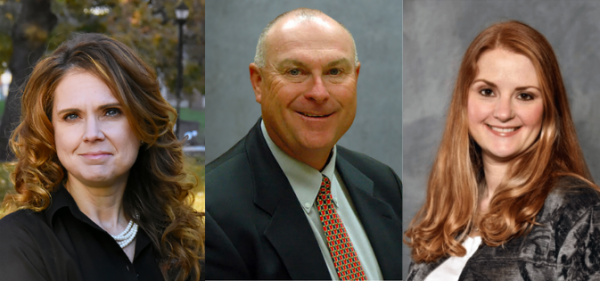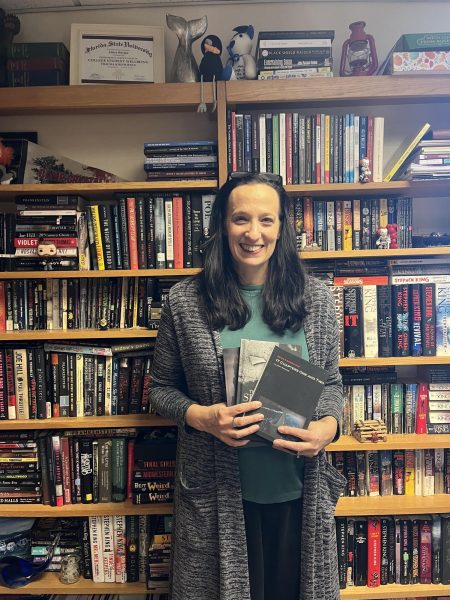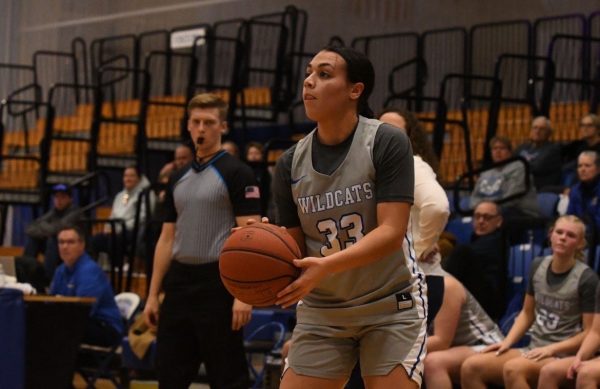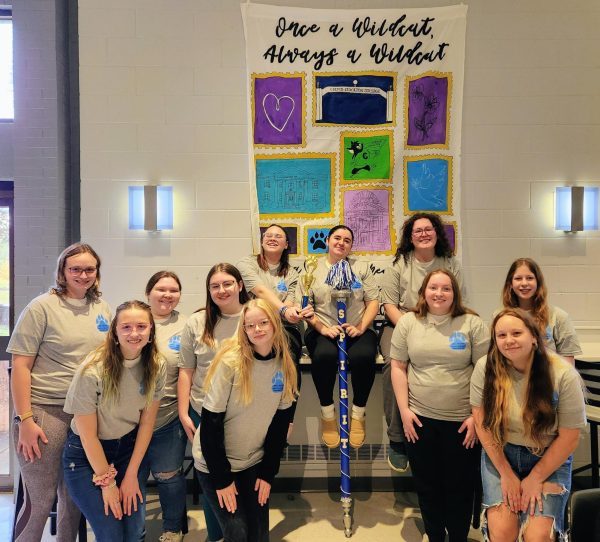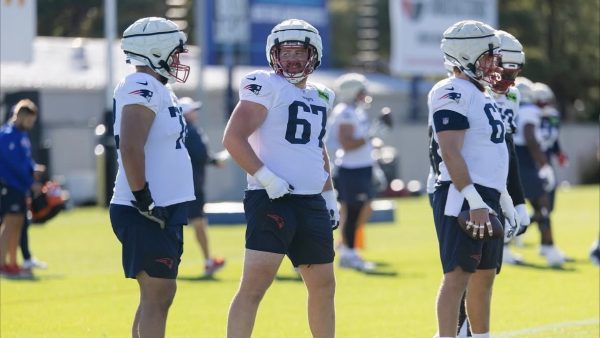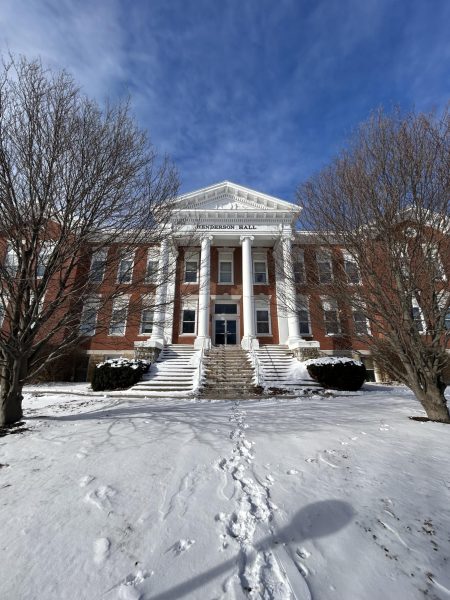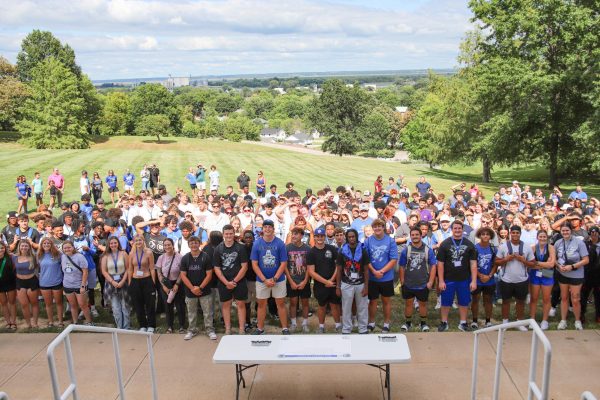Akeem Olaj Talks Trauma, and the Radical Importance of Healing
Poet Akeem Olaj signed copies of his books after his performance.
Poet Akeem Olaj visited Culver-Stockton College on Monday, February 28, sharing a body of work that covered his experiences with Blackness, depression, and abuse. While these might seem to be a dour trio, Olaj cultivates learning, humor, and healing from the seeds given by a world that has been anything but kind. The show was presented by the Black Student Union, Campus Programming Council, and the Student Life Office.
Olaj’s poetry touched on the horror of dementia and the loss of identity, physical and sexual abuse that has marred his own life and that of his family, to the unbearable repression of emotion and authenticity that Black Americans must endure to keep themselves safe from danger. His poetry offered a mix of his own experience, and a deep knowledge of history, with allusions to the well-known, such as the figures of the civil rights movement, the recently prominent, such as the destruction of America’s “Black Wall Street” in Tulsa, to obscure history such as the 1452 Papal Bull that granted Portugal the right to enslave Africans to “Christianize” them. It also touched on contemporary issues, such as medical racism, with Olaj recounting tales of medical negligence from a dead friend, generations of difficulty with births in his family, and figures as prominent as tennis star Serena Williams nearly being allowed to die in childbirth with her complaints and symptoms ignored by medical staff.
These heavy topics were kept friendly to the crowd through his wit and charm, interspersed with relatable, lighter topics such as his ventures into pandemic-inspired at-home nudism. For the break halfway through his set, Olaj had the audience stand up and had each member of the audience add a positive word and positive energy into the room, where some attendees amusingly did their best to flee toward the side that would answer later, creating a delightful rapport that saw answers from “smiles”, to “extravagant love”, to our own Director of Student Engagement, Bill Boxdorfer’s answer of “Students”, each participant adding in their own meaning and perspective. A 2016 performance of Black Boys, Die Easy, one of the poems in Olaj’s Monday set follows.
Contributing to students’ liberal education and complimenting Culver’s stated values through offering a path to better conduct, Olaj shares the lessons of his life. He urges his audience to grow, to learn, and most importantly to heal, imploring us to use the resources we have, such as the therapy provided as a benefit of our tuition, stressing the importance that those subject to violence must heal so that they don’t go on to inflict that violence upon others. Olaj emphasized the idea of all things being a sort of energy, and that energy being transferred. In his role as a performer, he gives the crowd energy and asks that we reciprocate. But, just as this positive energy of performance and learning from one another’s experiences can be shared, so too can negative energy.
Violence is put upon people, and having that hurt in them, they will often hoist it onto others if it’s left to fester. As a victim of abuse, a person is subject to the danger of it shaping their own behavior and relationships, excusing and obscuring such offenses against others. It is often easy to brush the past under the rug, to let it simmer unresolved, and let hurt pile upon hurt until it’s simply the way things are. Olaj implores that everyone stands up and “tell the truth, regardless of how hard it might be” for a “brutal honesty” is needed to end the cycle of abuse.
Olaj can be found on his website, and has two books of his poetry, Tethered Manacles, and Lazaretto: Quarantine is available through Amazon. Fairly described as a “Modern-day Renaissance Man” in his bio, Olaj holds a wide array of interests as a writer, martial arts instructor, actor, and architect. A pillar of the community in New Orleans, Olaj has been active in promoting and spreading the art of slam poetry since 2004, and pursued a degree in architecture, helping to contribute to the continued rebuilding of his community in the wake of Hurricane Katrina.

